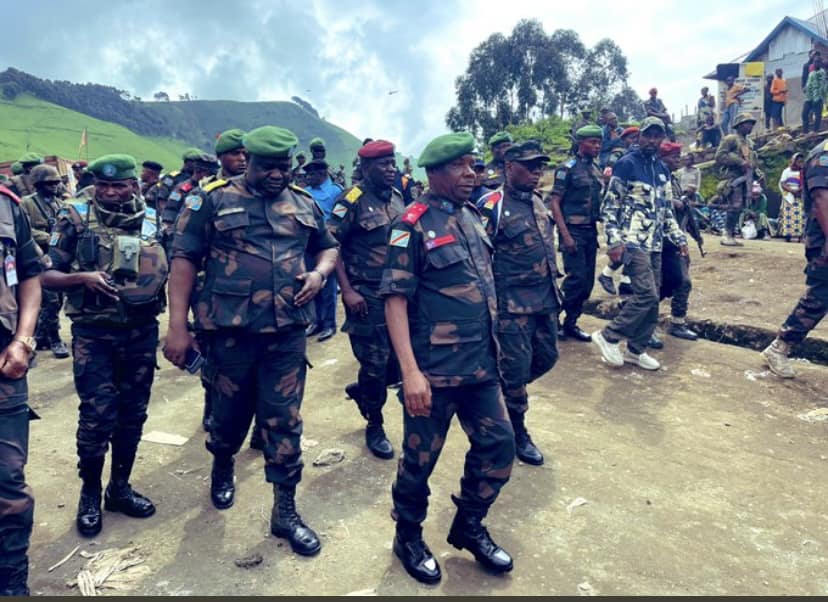ADF STAFF
After a six-month lull, a new swell of violence has washed over the eastern Democratic Republic of the Congo (DRC), where the Congolese army has accused M23 rebels of violating another cease-fire.
“M23 terrorists have just fired two mortar bombs at the advanced positions of the armed forces of the Democratic Republic of Congo (FARDC) in Kibumba,” North Kivu province spokesperson Lt. Col. Guillaume Ndjike Kaiko said in an October 6 statement.
On October 10, Kaiko reported that the rebels had killed seven Congolese in Kisigari, not far from Kishishe village, where M23 massacred more than 145 civilians nearly a year ago.
“As in Kishishe, the M23 terrorists have just committed a massacre on Congolese populations overnight in Rutshuru territory under the pretext that the [villagers] are collaborating with the so-called Wazalendo patriots,” he said.
After announcing a withdrawal from this region near the border with Rwanda, the M23 has returned to launch attacks. Their new foes mostly are local self-defense militias called the Wazalendo.
Despite M23’s coordinated attacks, Maj. Gen. Peter Cirimwami Nkuba, interim military governor and commander of operations in North Kivu, said government authorities told FARDC forces not to engage.
“We were not asked to come and attack but rather to observe the cease-fire,” he said in a statement. “If the M23 wants to violate the cease-fire, that’s their problem. It will be seen in front of everyone and at an international level.”
At least 20 civilians have been killed and 30 more wounded since October 1, according to the United Nations Office for the Coordination of Humanitarian Affairs.
“More than 84,700 people had been forced to flee their homes,” it reported, noting that access to aid “remained greatly restrained” due to the “intensification of the fighting.”
Some of the fighting has occurred in Kitshanga, a strategic town 50 kilometers from the provincial capital, Goma. Different forces have occupied the town since January, when M23 rebels took hold.
M23 handed it over to the East African Community Regional Force (EACRF) in April but briefly took it back in early October before FARDC sent hundreds of Soldiers to reclaim the town.
The DRC government on October 9 said it will not renew the EACRF’s mandate, which expires on December 8.
“They have not been able to resolve the problem,” Minister of Communication Patrick Muyaya said. “It is the duty of every Congolese person to defend every centimeter of the national territory.”
The DRC also requested the expedited withdrawal of the U.N. mission known as MONUSCO by the end of this year.
President Felix Tshisekedi recently ordered FARDC to deploy 40,000 newly trained Soldiers near the border with Rwanda.
Tshisekedi has traded blame with Rwandan President Paul Kagame, and DRC officials in the east have increasingly blamed M23’s actions directly on Rwanda.
Bénédicte Kumbi Ndjoko, spokesperson for Congolese civil society organization Likambo Ya Mebele, said M23 was able to launch its latest wave of coordinated attacks because it is backed by Rwanda.
“What we see here is nothing new,” she said in an interview with Nigeria-based News Central TV. “The M23 was able to capture so many places in Rutshuru and Masisi because they have the support of Rwanda, and that support has been documented by the U.N.”

